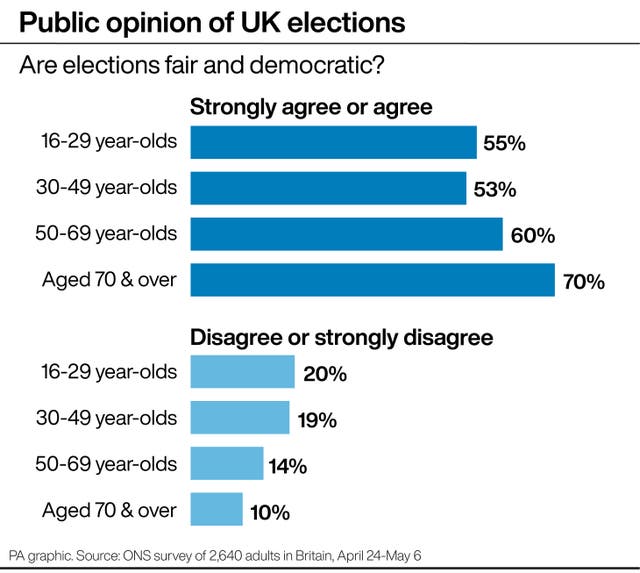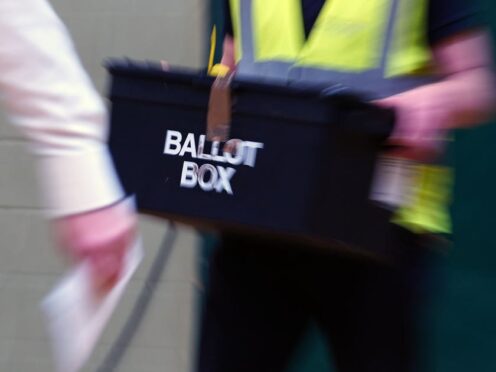One in five young adults does not agree that elections in the UK are fair and democratic, a new survey suggests.
It is the highest proportion for any age group and is double the equivalent figure for people aged 70 and over, which is one in 10.
The survey was carried out by the Office for National Statistics (ONS) and asked a range of questions about attitudes towards elections.
Around six in 10 of all respondents (58%) agreed or strongly agreed that elections in the UK are fair and democratic.
The proportion was higher among men (66%) than women (51%), and among people aged 70 and over (70%) than 50-69 year-olds (60%), 30-49 year-olds (53%) and those aged 16 to 29 (55%).

By contrast, the proportion who said they disagreed or strongly disagreed that elections are fair and democratic was highest among 16 to 29-year-olds (20%) and got steadily lower for 30 to 49-year-olds (19%), 50 to 69-year-olds (14%) and the over-70s (10%).
The survey did not ask respondents to give their reasons for agreeing or disagreeing.
Prime Minister Rishi Sunak has indicated the next general election will be held in the second half of this year.
The last possible date by law for the election to take place is January 28 2025.
The ONS also asked people what concerns they had about the conduct of the general election.
The most common reported issue was “fake news” and the spread of misinformation, which was named by 64% of all respondents.
This was followed by bias in the media (54%) and foreign influence on the election results (35%).
Some 19% of respondents said they were concerned about the requirement to present ID at polling stations before being able to vote while 18% were concerned about electoral fraud.
The same figure, 18%, said they did not have any concerns about the next general election.
Fears of “fake news” and misinformation were highest among 30 to 49-year-olds (68%) and lowest among people aged 16 to 29 (51%).
Concern over foreign influence on the election results was highest among those aged 70 and over (42%) and lowest for 16 to 29-year-olds (28%).
The ONS surveyed 2,640 people aged 16 and over in Britain from April 24 to May 6.
